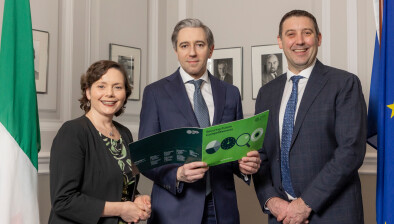New competition law enforcement powers come into effect

Brian McHugh
A new regime of administrative fines for breaches of competition law — allowing the Competition and Consumer Protection Commission (CCPC) to impose fines of up to €10 million or 10 per cent of a company’s global turnover — has come into effect.
The Competition (Amendment) Act 2022, commenced yesterday, transposes EU Directive 2019/1, also known as the ECN+ Directive, into Irish law and expands the CCPC’s powers to enforce EU and Irish competition law.
Until now, Ireland was one of a very small number of European countries where fines for breaches of competition law could only be imposed by a court following a criminal prosecution.
Under the new regime, the CCPC can grant leniency from administrative financial sanctions to companies who disclose their participation in cartels and/or resale price maintenance, and provide evidence on other participants.
To incentivise companies to come forward, full immunity from administrative financial sanctions is only available to the first successful applicant. Subsequent successful applicants may receive possible reductions of any administrative financial sanctions that might otherwise be imposed.
The new administrative leniency programme will operate alongside the CCPC’s current criminal cartel immunity programme, which is run in conjunction with the Director of Public Prosecutions.
CCPC chairperson Brian McHugh said yesterday: “Today marks a new day in terms of competition law enforcement in Ireland. The substantial financial penalties that are now available to the CCPC will be an essential deterrent when tackling white-collar crime, including cartels.
“We are also introducing a leniency programme, which international evidence shows is the single most effective way of gathering essential evidence of collusion. Our leniency programme is now open for applications and we look forward to engaging with legal stakeholders on the practical operation of the scheme.”
There are also a number of notable changes to the merger control regime, including new powers to call in mergers and acquisitions that would not previously have required mandatory CCPC approval where the CCPC considers the merger may have an effect on competition in markets for goods and services.
Furthermore, the CCPC’s ability to gather evidence against cartel suspects has been strengthened to allow the CCPC, with High Court authorisation, to undertake video and audio surveillance, and record electronic communications in cartel investigations.
Simon Coveney, minister for enterprise, trade and employment, said: “The Competition (Amendment) Act represents the transformation of competition law in Ireland and is a significant piece of legislation in our overhaul of consumer and competition law. It provides a strong deterrent against engaging in anti-competitive practices.
“In providing our competition authorities with new powers we are sending a strong signal that white collar crime will not be tolerated and will be heavily penalised.”
He added: “White collar crime affects everyone. Anti-competitive behaviours drive up costs, hinders innovation, freezes out start-ups and smaller businesses and leads to bad quality products and poor services.
“This new legislation is a powerful asset in competition law enforcement that will ensure violators are faced with strong penalties. The Act ensures that consumers are empowered by a regime that penalises anti-competitive practices. This results in a healthy and competitive marketplace that offers value and choice for consumers.
“I will continue to work with our competition authorities to ensure the tools to tackle white collar crime are effective and robust.”









